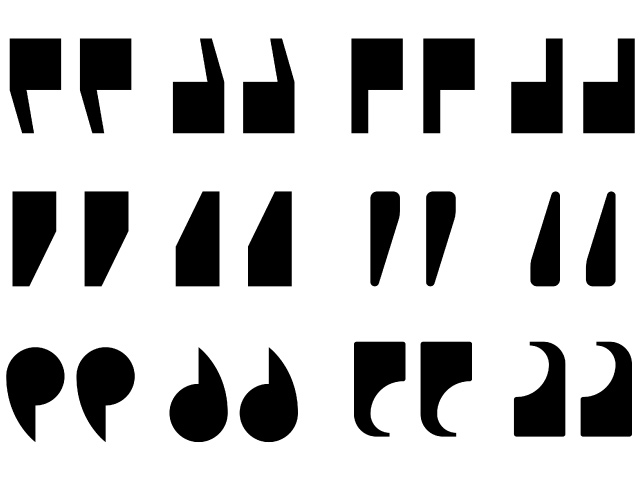Credible sources: definition
A reliable source aims to give accurate references.
This information is verifiable and recognized in its field of activity by professors or experts.
They have several characteristics, in addition to the fact that they are recognized by experts. In addition, the facts are proven, there is evidence that can be verified in several books. These sources must also be objective, they are in no way linked to personal opinions.
Sources, to be considered reliable, must be constantly updated, as some sectors are experiencing more changes than others. Their development is different, some require more adjustments than others.
Finally, reliable sources are in no way used to manipulate anyone, they provide information, they educate, they train.
Objectives and challenges of using reliable sources
Credible information will allow for more informed, faster and more reliable decision-making. This reduces the margin of error in these decisions.
In addition, in the academic field as in all other fields, the use of reliable sources makes it possible to transmit real knowledge. Indeed, today, artificial intelligence software is known for not always using reliable sources, but these sources are still relayed on the net.
This is dangerous for knowledge in its general sense.
It is also a question of seeking and promoting a certain integrity in all areas impacted by research and respecting copyright, which seems to be increasingly complex with artificial intelligence but also with the problems related to plagiarism.
Reliable sources finally make it possible to fight against disinformation, something that is increasingly found. We note that since the spread of artificial intelligence on the net, a lot of information circulating on the net is false, for manipulation or other purposes. It remains very complex to distinguish between true and false content.
What are the areas where the sources must be reliable?
In the academic field, first, research at the academic level must be reliable, so that the right information is transmitted.
If the work that is done at the academic level is wrong, it contributes to threatening the entire academic sector.
The same is true in journalism, where communicating good information is essential to gaining public trust. Some media are therefore more popular than others in this area.
Some sites also provide medical advice, Internet users follow them, so it is necessary to be careful that the information given is real, otherwise health problems can sometimes be very serious.
How to spot reliable sources in 2024?
The importance of considering the author and his references
The author must be known for his research, qualifications, or other in each sector. To ensure that a source is reliable, it is therefore necessary to check the author's references, what he has already written, if it is indeed the same author and not a homonym.
Determine their expertise in the area in question.
It is also necessary to check the date of publication, in addition to the author. Current events play an obvious role, and some research carried out ten years ago is no longer valid.
The publisher
The more reputable the publishers, the more reliable the content. Even if anything is possible and some hackers are now able to produce false content, especially at the journalistic level.
To check the reputation and seriousness of the publisher, look at the most specialized journals, as they are often considered to be the most reliable.
The same goes for official reports, depending on the field. The reports of governments and administrations are often reliable and can be taken as references without problems.
Research-related citations
Generally, sources that are true are found in books, on specialized websites in the form of quotes. If there are no traces of citations in what is declared to be reliable content, then we must have a certain amount of mistrust.
Generally, it is possible to spot the unserious sites, the domain names are biz or info, non-exhaustive list.
The content of these sites focuses on sensationalism, and the information is likely to be incorrect.
Objectivity
We spoke earlier of the necessity of the notion of objectivity in the most reliable sources. There are sources on some sites that are clearly oriented whether at the academic, political or economic level. These sources often represent a danger in terms of reliability.
Sources that are reliable have no signs of bias, there is no sign of manipulation of any kind.
Sources that are reliable are not limited to presenting a point of view and remaining fixed. Authors who are experts in a field will also present arguments and counterarguments to prove the validity of their words.
Analyze the audience targeted by the source
When you know the purpose of a source, the audience for which it is intended, it is already possible to have an idea of its reliability.
The most reliable are the ones that inform, we must keep this in mind. They are decidedly different from those that influence or try to persuade of something. Similarly, technical and objective analyses appear to be more reliable than simple summaries.
Examples of reliable sources
Academic sources, which are published in journals such as Harvard, all universities or grandes écoles are considered reliable.
Official government websites, nationally or internationally renowned sites or newspapers such as Le Monde, or the BBC or the New York Times, the Independent are generally considered reliable.
Conclusion
Today, it remains very important to know how to identify a reliable source, in all fields and for several reasons. Society is changing and new technologies now make it possible to do several things, especially with artificial intelligence. The more time passes, the more necessary it becomes to fight disinformation effectively, as it can have disastrous consequences on the news, and more generally on the digital world. Giving leads to identify reliable sources is necessary so that everyone learns to differentiate between what is true and what is not.
https://libguides.usc.edu.au/credible
https://guides.lib.uw.edu/research/faq/reliable
https://www.google.com/search?client=safari&rls=en&q=what+are+credible+sources&ie=UTF-8&oe=UTF-8










